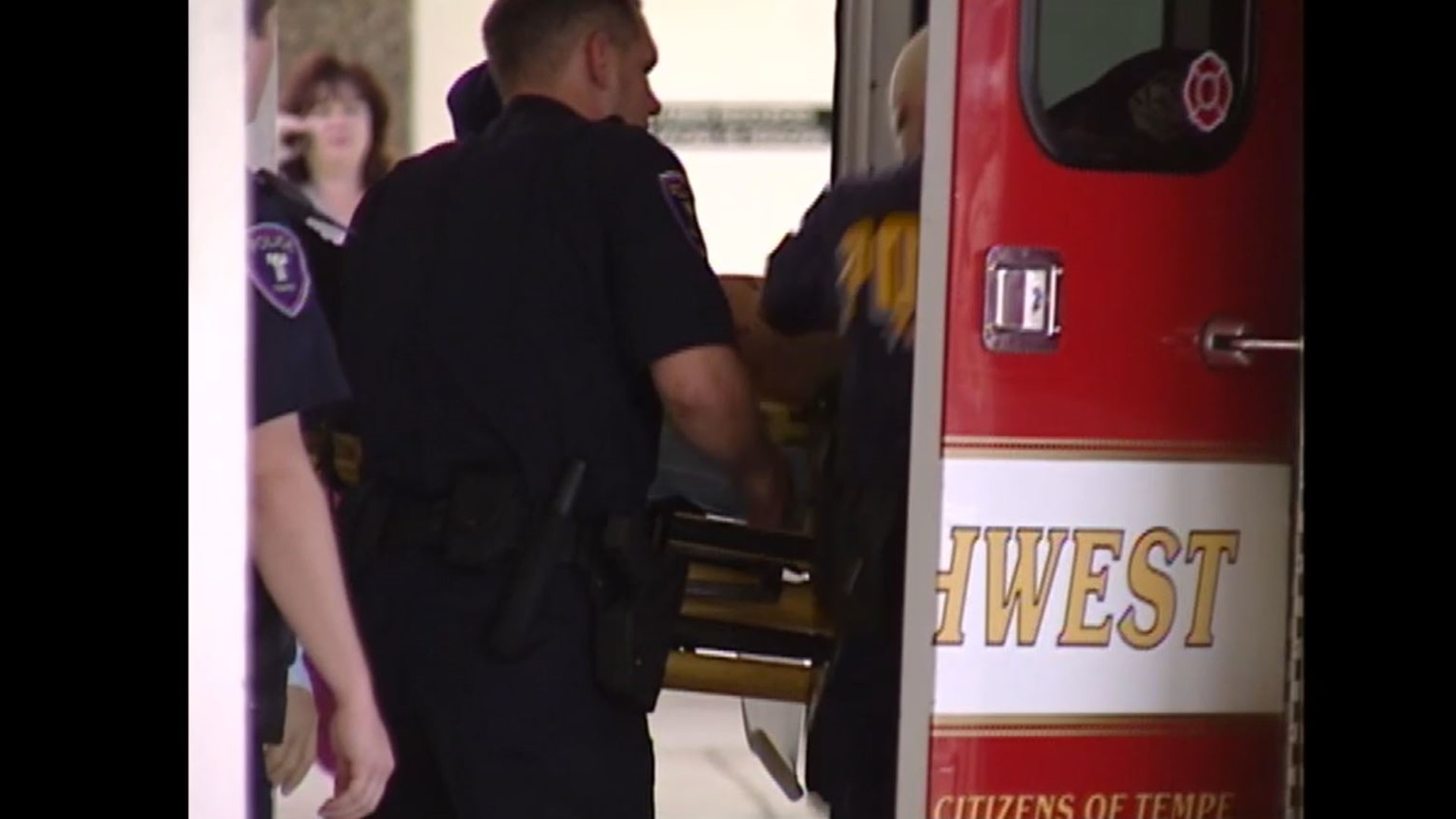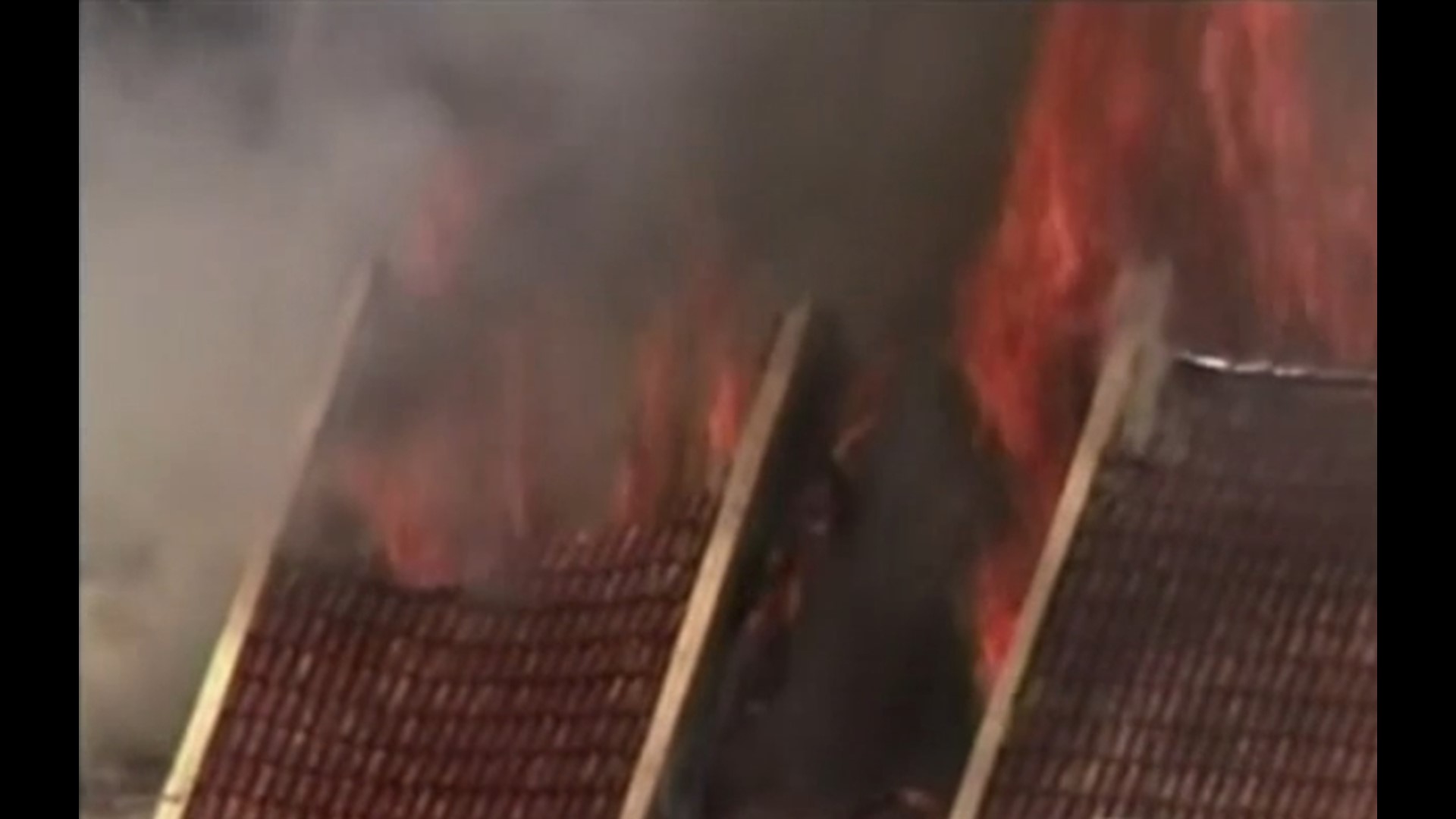SHOW LOW, Ariz. — Two retired police officers who were injured in the line of duty are opening up about navigating life after injury.
Scott Tipton and Dan Masters are both retired Tempe PD officers and both had their careers cut short after a line-of-duty injury. Their stories mirror that of Phoenix police officer Trisha Eskridge, who was shot while carrying a baby to safety and recently denied a full disability claim.
Now, Tipton and Masters are clearing up misconceptions about what it's like to struggle with a life-changing injury as a police officer.
"He shot me seven times": Scott Tipton's story
On July 14, 2000, Tipton had been with Tempe PD for less than three years. He was close to wrapping up his shift, eager to meet his wife to celebrate their ten year anniversary.
He got sent to a domestic violence call and approached the male suspect who was sitting in his car.
“He was uncooperative," Tipton said. "And so I tried to get him out of his car.”
Tipton pepper sprayed the suspect and was waiting for backup.
“While I was waiting, he got a .45 pistol, retrieved a .45 pistol down between the seat and the emergency break and he shot me," Tipton said. "And at that time, he shot me seven times.”
Tipton was down on the ground as the suspect went back to his car where more magazines and firearms were waiting. Investigators would later find a manifesto from the suspect.
Tipton managed to return fire.
“One went through my forearm, and the other one through my right armpit and exited my sternum," Tipton described. "And then one I got in the right butt cheek and the right hip and shattered my femur.”
Somehow, Tipton survived.
He later tried to go back to work but his injuries were too much. He submitted for an early disability retirement.
Tipton is now Justice of the Peace in Show Low.
"I could feel metal and wood and insulation": Dan Masters' story
Dan Masters was one month shy of 19 years with Tempe PD. He was a sergeant at the time.
“I was actually injured on May 25, 2010," Masters said.
Masters was the first to arrive at a massive fire at an apartment complex. Dozens of residents were flooding out of the burning building. Pets and people were still inside.
Masters instinctively ran into the building to help and made his way to the top floor.
“That's when the building collapsed and I have a fuzzy memory. I remember thinking to myself, first it was incredibly heavy because it was the weight of the roof and all that," Masters recalled. "I remember I could feel metal and wood and insulation. And then it was incredibly hot because it was all on fire.”
Masters was taken to the hospital with a head injury and smoke inhalation. He ultimately needed spine surgery and a hip replacement.
His injuries were only part of the uphill battle he faced.
Navigating disability after a line of duty injury
For Tipton, with the exception of his attorney later becoming disbarred for his conduct during his case, his experience with disability was straight forward.
“Fortunately, I had a pretty good experience with the city. They took care of me very well," Tipton recalled. "I don't think was long and drawn out.”
But he had 3.5 years on the job when he retired, so the amount he received meant he had to find a new career and start over.
“Your disability pension is basically 50 percent of what you made in your highest three years. So unless you living below poverty level, it's not going to take care of you for the rest of your life," Tipton explained.
Masters had to fight the City of Tempe to get his medical retirement.
“Workmans' comp was saying 'we're not going to pay for the surgery because it wasn't job related.' My private insurance was saying, 'well, we're not going to pay for it, because it happened on the job,'” Masters said.
He said he felt discarded after devoting nearly 20 years to the city.
“You go from feeling like, 'Okay, I did my job, and I did it well, and I would do it again,' to 'now I have to prove that I did my job,'" Masters said. "And to have someone question me, to question my integrity, and my passion for my job and my dedication? That was really hard.”
Masters' claim was ultimately accepted. He said there is a misconception that officers will be set for life after they are injured in the line of duty.
Process remains difficult today
Phoenix PD Officer Trisha Eskridge asked for maximum disability retirement, known as a "catastrophic" disability, after she was shot multiple times in an ambush while trying to save an infant from a front doorstep.
She did not get it.
Instead, the mother of four will receive 50 percent of her salary in retirement. Phoenix's pension board approved an "accidental" disability claim.
“Today, being a police officer is much more dangerous. And the reason that the cities and the counties are having a problem finding people to work is because of that nature," Tipton said. "People should be compensated for the danger they're willing to get into. So unless the cities and the counties and the people that are looking for law enforcement officers are willing to pay a lot more money, they're probably gonna be facing the same situation.”
“I think there needs to be that support system in place, but then also to have resources available for those that do get injured," Masters said.
Up to Speed
Catch up on the latest news and stories on our 12News YouTube playlist here.



